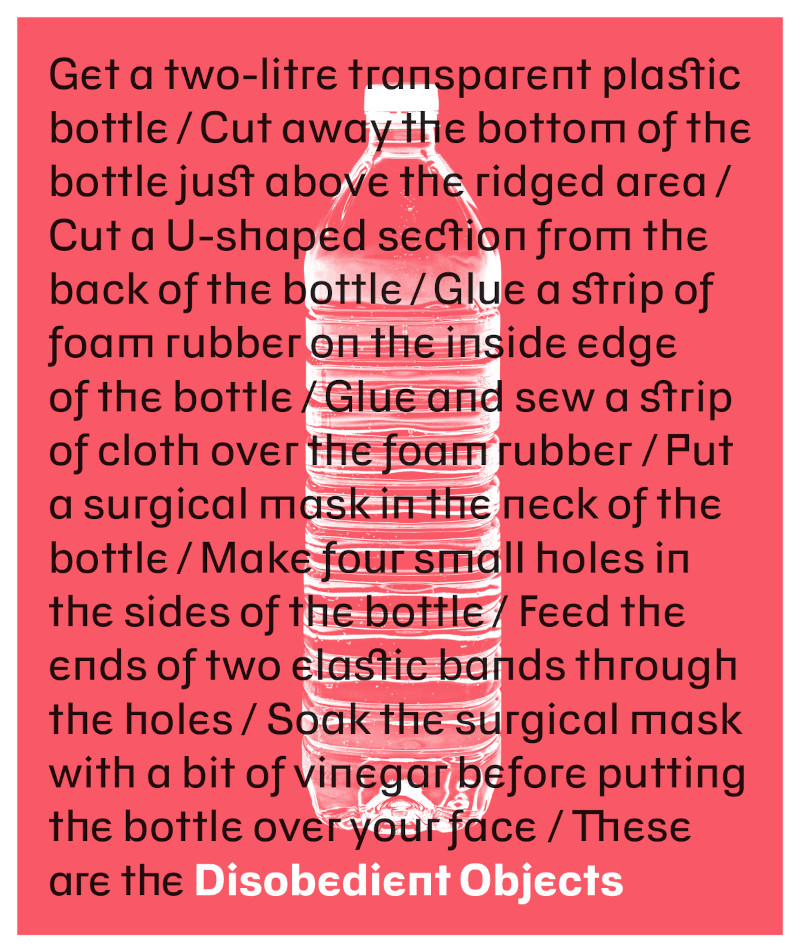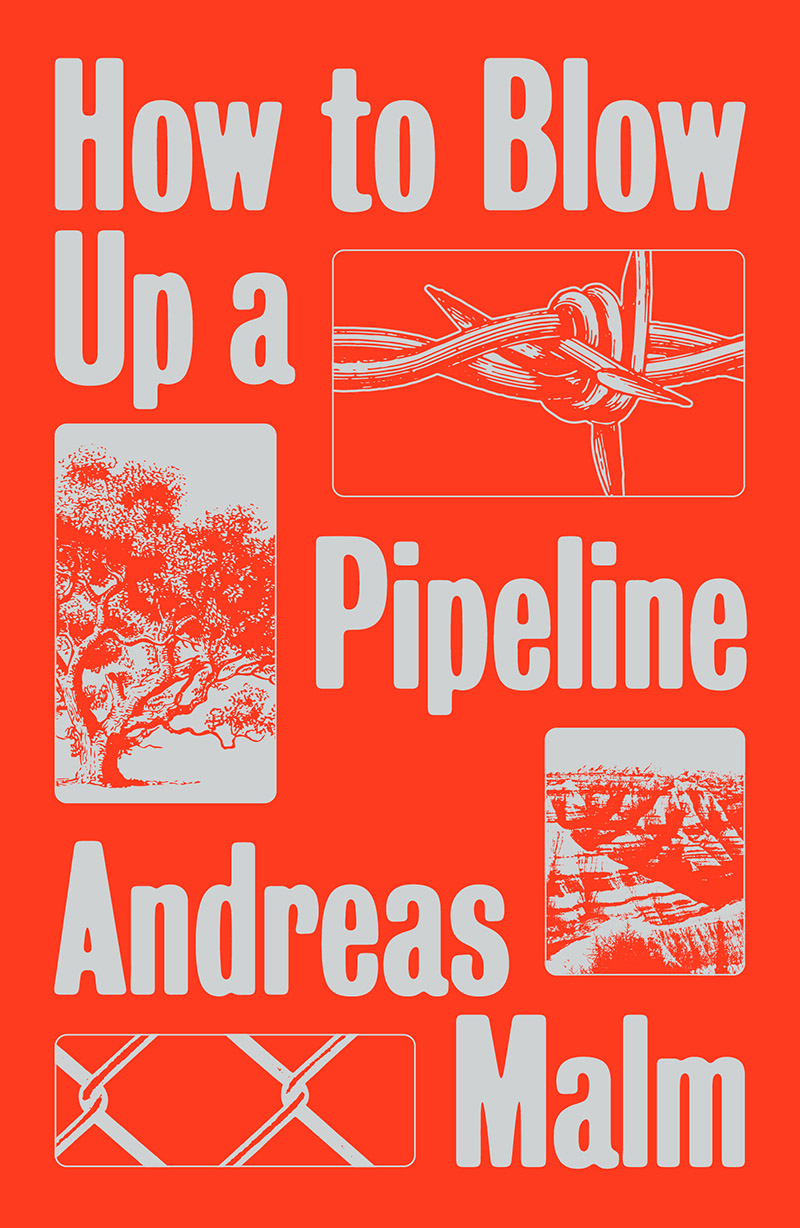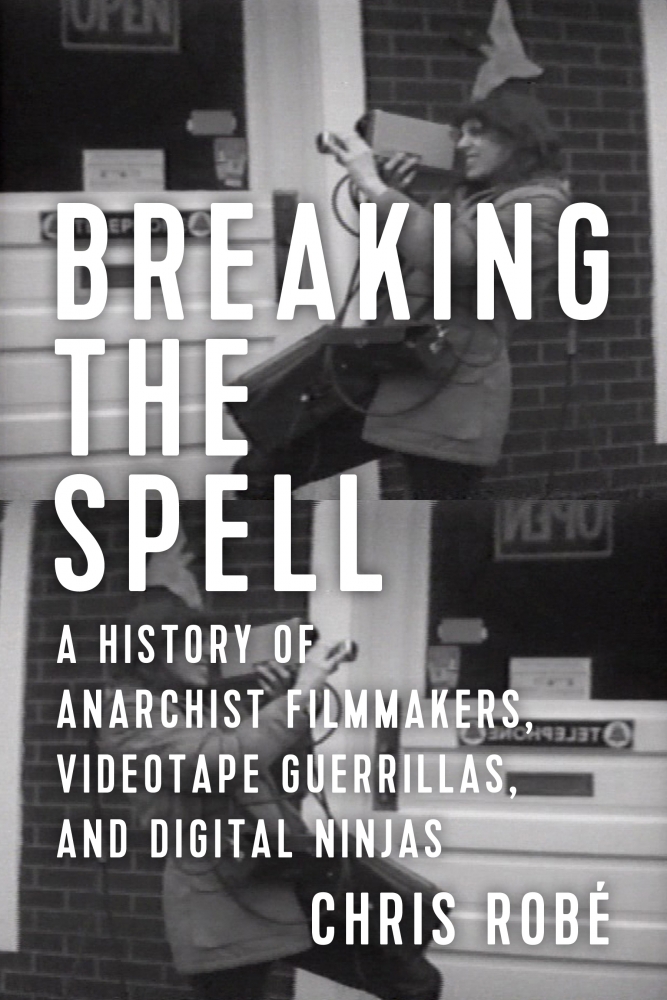Catherine Flood, Gavin Grindon (eds.): Disobedient Objects (2014)
Filed under catalogue | Tags: · activism, design, direct action, disobedience, object, politics, protest, social movements, solidarity

“This book explores the material culture of radical change and protest – from objects familiar to many, such as banners or posters, to the more militant, cunning or technologically cutting-edge, including lock-ons, book-blocs and activist robots. Focusing on social movements since 1980, the book features an introductory essay by the curators examining the history of objects in protest and activism, followed by six essays that look at particular objects, and the contexts in which they are used. It demonstrates how political activism drives a wealth of design ingenuity and collective creativity that defy standard definitions of art and design. Accompanies the V&A exhibition Disobedient Objects, July 2014 to February 2015.”
With essays by Mark Traugott, Anna Feigenbaum, Francesco Raparelli, David Graeber, Nicholas Thoburn, and Ana Longoni.
Publisher V&A Publishing, London, 2014
ISBN 9781851777976, 1851777970
144 pages
Exh. review: Richard Taws (West 86th, 2014).
Book review: Thomas Snow (Object, 2015).
Exhibition
Exhibition blog
WorldCat
PDF (63 MB)
Comment (0)Andreas Malm: How to Blow Up a Pipeline: Learning to Fight in a World on Fire (2021)
Filed under book | Tags: · activism, climate, climate crisis, direct action, disobedience, oil, property, protest, sabotage, social movements, violence

“Why resisting climate change means combatting the fossil fuel industry
The science on climate change has been clear for a very long time now. Yet despite decades of appeals, mass street protests, petition campaigns, and peaceful demonstrations, we are still facing a booming fossil fuel industry, rising seas, rising emission levels, and a rising temperature. With the stakes so high, why haven’t we moved beyond peaceful protest?
In this lyrical manifesto, noted climate scholar (and saboteur of SUV tires and coal mines) Andreas Malm makes an impassioned call for the climate movement to escalate its tactics in the face of ecological collapse. We need, he argues, to force fossil fuel extraction to stop—with our actions, with our bodies, and by defusing and destroying its tools. We need, in short, to start blowing up some oil pipelines.
Offering a counter-history of how mass popular change has occurred, from the democratic revolutions overthrowing dictators to the movement against apartheid and for women’s suffrage, Malm argues that the strategic acceptance of property destruction and violence has been the only route for revolutionary change. In a braided narrative that moves from the forests of Germany and the streets of London to the deserts of Iraq, Malm offers us an incisive discussion of the politics and ethics of pacifism and violence, democracy and social change, strategy and tactics, and a movement compelled by both the heart and the mind. Here is how we fight in a world on fire.”
Publisher Verso Books, London, January 2021
ISBN 9781839760259
136 pages
HT pht
Interviews with author: Wen Stephenson (LA Review of Books, Jan 2021), Politics Theory Other (Jan 2021, audio), Sarah Swackhamer (Houston Review of Books, Jan 2021, with audio)
Reviews: Scott W. Stern (LA Review of Books, Jan 2021), Tatiana Schlossberg (New York Times, Jan 2021), George Buskell (Polit Econ Research Centre, Jan 2021), Alan Thornett (Global Ecosocialist Network, Feb 2021), Jess Walsh (Socialist Workers Party, Apr 2021), Benjamin Kunkel (New Republic, May 2021).
Book roundtable: Graeme Hayes, Alice Swift, R.H. Lossin (Verso, Jan-Feb 2021).
Response to critics: Andreas Malm (Verso Blog, Apr 2021)
EPUB (updated on 2021-8-17)
See also Malm and The Zetkin Collective’s White Skin, Black Fuel (2021).
Comment (1)Chris Robé: Breaking the Spell: A History of Anarchist Filmmakers, Videotape Guerrillas, and Digital Ninjas (2017)
Filed under book | Tags: · activism, aesthetics, aids, anarchism, autonomy, direct action, ecology, film, indigenous peoples, labour, marxism, media activism, neoliberalism, politics, protest, punk, social movements, strike, third cinema, video, video activism, video art

“Breaking the Spell offers the first full-length study that charts the historical trajectory of anarchist-inflected video activism from the late 1960s to the present. Two predominant trends emerge from this social movement-based video activism: 1) anarchist-inflected processes increasingly structure its production, distribution, and exhibition practices; and 2) video does not simply represent collective actions and events, but also serves as a form of activist practice in and of itself from the moment of recording to its later distribution and exhibition. Video plays an increasingly important role among activists in the growing global resistance against neoliberal capitalism. As various radical theorists have pointed out, subjectivity itself becomes a key terrain of struggle as capitalism increasingly structures and mines it through social media sites, cell phone technology, and new “flexible” work and living patterns. As a result, alternative media production becomes a central location where new collective forms of subjectivity can be created to challenge aspects of neoliberalism.
Chris Robé’s book fills in historical gaps by bringing to light unexplored video activist groups like the Cascadia Forest Defenders, eco-video activists from Eugene, Oregon; Mobile Voices, Latino day laborers harnessing cell phone technology to combat racism and police harassment in Los Angeles; and Outta Your Backpack Media, indigenous youth from the Southwest who use video to celebrate their culture and fight against marginalization. This groundbreaking study also deepens our understanding of more well-researched movements like AIDS video activism, Paper Tiger Television, and Indymedia by situating them within a longer history and wider context of radical video activism.”
Publisher PM Press, Oakland, CA, 2017
ISBN 9781629632339, 1629632333
x+469 pages
Interview with author: The New Architects (video, 2017, 43 min).
Reviews: Beth Geglia (Interface, 2017), Franklin Lopez (Fifth Estate, 2017), Patricia R. Zimmerman (Jump Cut, 2018), Allan Atliff (Anarchist Studies, 2017).
PDF (16 MB)
Academia.edu (author)

